As an executive, your ability to influence others will have a dramatic impact on your organisation’s performance. This power can lead to positive or negative results depending on how it’s used.
Executive coaching can help identify the key skills you need to possess in order to take your career and your business to the next level. Executive business coaching develops the skill sets and capabilities of high-potential performers. It provides coaching, mentoring, and guidance to accelerate personal growth and achieve even greater success.
Executive coaches ask a lot of questions. Unlike a consultant or business coach, they are not there to tell you what to do. They are there to help you develop the skills and thought-process you need to get to the right decisions. An executive coach is vested in helping you find the right answers and developing a framework to apply to critical thinking.
Executive Business Coaching
A Stanford University study published in the Harvard Business Review of 200 CEOs and other senior executives looked at executive coaching services and why executive coaches are being engaged. Here are the top 12 areas CEOs are looking to improve in themselves:
- Conflict Management Skills
- Listening Skills
- Delegation Skills
- Planning Skills
- Mentoring Skills
- Communication Skills
- Team Building Skills
- Decision Making Skills
- Compassion and Empathy
- Persuasive Skills
- Interpersonal Skills
- Motivational Skills
You may look at that list and think you know how to do all of these things. If you’ve risen to the executive ranks, you surely have acquired some proficiency. The question you should ask is whether improving those skills will improve your organisation.
Benefits of Executive Coaching
The benefits of executive coaching boil down to this one overriding goal: to help you maximise your potential as a leader. This happens by helping you be more self-aware and more aware of team member needs. Coaching can help you develop your critical thinking and leadership abilities. It can help you be more empathetic as you develop your soft skills.
Build Self-Awareness
We can all benefit from an objective look at who we are and how we operate. It’s hard to do though since we filter all our experiences through our personal belief systems. Most people believe they are self-aware and understand how others perceive them. They would be wrong. As few as 15% of people are actually self-aware.
Executive leaders may, in fact, be the worst at it. A study of more than 3,600 leaders showed that high-level leaders routinely overvalued their skills and abilities. The results were consistent when they compared the group’s self-assessment against the perceptions of others. It seems the more experienced we are, the more out of touch we can be with what others think.
Why is this important? Teams led by self-aware leaders perform better.
Build Self-Confidence
When you’re the boss, it can be difficult to admit to your subordinates that you don’t have all the answers. You know, however, that you don’t. An executive coach provides a non-judgmental sounding board to help you evaluate situations. They can help you think through scenarios and make sure you are asking the right questions of yourself.
This leads to greater self-confidence that you aren’t just acting on your gut instinct but have taken the time to analyse the potential outcomes of your decisions.
Build Soft Skills
No matter how talented you are, you need a strong team that believes in your mission in order to succeed. It’s not enough to be smart and have a good plan. The leaders that can articulate the why behind the what, and motivate people to the cause, that have the most success.
This means developing better soft skills to objectively assess your team and provide the spark they need at the right time. By better understanding how your interactions and emotions impact others around you, you can better manage relationships.
Build Empathy
Not only do you have to look within, but you also have to be able to see how others are feeling. In sales, the key to closing the deal is anticipating your customer’s needs and demonstrating how your product or service will solve their problem. With team members and stakeholders, understanding their needs – both functional and emotional – allows you to anticipate their needs and deliver what they need.
It also helps with employee satisfaction and job retention. Having a negative perception of the boss is the number one reason employees leave jobs. Number two, by the way, is a lack of recognition in the workplace.
Your executive coach can help you tune in to the signals others are sending. Empathy is a powerful motivator.
Build Leadership Abilities
Executive coaching is one of the most effective tools you can employ to grow your leadership abilities and those of your future leaders.
It can be a fine line between acting like a manager and acting as a leader, but it’s a critical distinction. Managers are focused on tactics to get the job done. Leaders develop the vision for their organisations and set the tone. Leaders define where the company needs to go; managers drive the team to go there. Your coach will keep you focused on the forward-thinking vision rather than the tactical measures to achieve that vision.
Build Your Future
Effective coaching can also help you define your future and support you on the pathway. Coaches can help give you honest feedback with no vested interest in anything other than your success. By building your self-awareness, self-confidence, soft skills, empathy, and leadership abilities, executive coaches can give you the tools for futures success. Executive coaching services can help you make better decisions and be confident in your abilities.
What Is Executive Coaching?
Quite simply, it’s an investment in growing executives and organisations. An executive coach is equal parts coach, mentor, and confidante. What is an executive coach? Someone committed to helping you discover the best version of yourself, provide an honest assessment of your skills, and support you on your journey.





